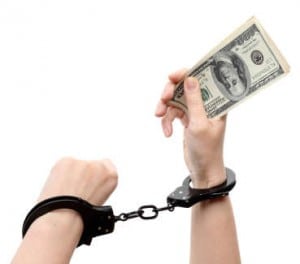U.S. banks stand to lose tens of billions of dollars in the aftermath of regulatory reforms that have hit bank coffers hard. Unfortunately, the hit to consumers may be even harder.
That’s because banks looking to make up for lost revenues are starting to charge fees for everything from using a debit card to maintaining a checking account.
For example, beginning in 2012, Bank of America will levy a $5 a month debit card fee on most of its customers. Also, starting in December 2011, Citibank will impose a $20 monthly penalty fee on customers whose account balances fall below $15,000. (Update: in November BofA and a host of other banks announced they would not charge debit fees).
And since about 75% of American consumers have a checking account balance that dips below $1,000 at any given time of the month, it’s a good bet that many Citi customers will get hit with that fee.
It’s not just BofA and Citibank, of course. Other banks, including Chase, PNC, Sovereign, Wells Fargo and others financial institutions have all recently rolled out fees of their own too.
Fortunately, there are at least three ways to escape escalating debit card fees and rising checking account fees.
1. Switch to credit cards.
Credit cards generally haven’t been subjected to the type of fee hikes we’re now seeing with debit cards. But caution: make sure you pay off your balance each month to avoid racking up debt.
Recommendation: Get online and comparison shop for the best credit card deal available. Go to a free site like CardRatings.com, which can help you find a credit card based on your credit rating and spending habits. I like CardRatings because they’ve done all the work for you in terms of analyzing credit card offers – including the good and the bad – and they give you independent evaluations and reviews of everything from travel cards to student credit cards to cash back cards and more.
2. Consider a prepaid card.
With so much upheaval in the banking world, I expect prepaid cards to grow in popularity tremendously over the next year or two.
This is a great option for those who want to store money simply by loading cash – or even their monthly paychecks – onto a prepaid card and using that card to pay bills or to make purchases online and in stores. A prepaid card doesn’t require a credit check or a checking account. And you can use it to keep track of your overall budget and spending.
Recommendation:Be sure to shop around for the best deal on a prepaid card.
3. Switch banks.
Lots of people fed up with big banks are talking about switching banks. That’s an option, although I think you should evaluate your overall relationship with an institution and think about whether or not you’re being well-served before simply pulling your money out in reaction to one event or one fee.
If you do decide to make a switch, you can change to a local bank, try an Internet bank, or even consider a credit union. If you’re a saver or a retiree on a fixed income, it’s especially important to make your money work hard for you, so you want to find a bank that offers good, FDIC-insured savings accounts and other products like certificates of deposit.
Recommendation: To track down and compare the highest yielding savings accounts and find good deals on CDs, visit MoneyRates.com.










